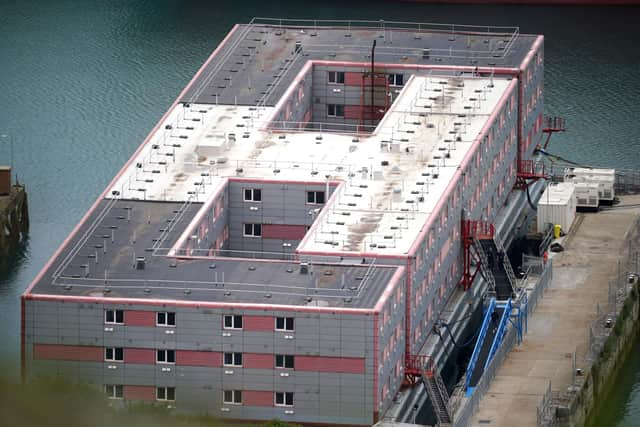Devastation caused by climate change will only continue to fuel migrant crossings - David Kibble
Whatever we do here in Britain to try to stem the tide of migration, things are only going to get worse. They are going to get worse because climate change is going to force people to move from their homes. And that movement will eventually cause conflict – as it already has, for example, in northern Nigeria.
What are people to do where it becomes too hot to work? Since 1980 our world has experienced a 50-fold increase in the number of dangerous heat waves. The International Panel on Climate Change warns that in the not too distant future working out of doors will be unhealthy for people in certain parts of the globe. Even if we meet the Paris goal of keeping a temperature rise to 1.5 degrees, cities like Karachi and Kolkata will have annual heat waves that will be deadly. In 2015 such heat waves killed thousands in India and Pakistan. In 2016 in the midst of a heat wave that hit the Middle East temperatures in Iraq exceeded 37°C in May, 43°C in June and 49°C in July. In El Salvador, one fifth of the male population suffers from chronic kidney disease, the result of dehydration from working in the fields of sugarcane in which they were able to work comfortably twenty years ago. And now we see much of southern Europe suffering.
Advertisement
Hide AdAdvertisement
Hide AdIf people are increasingly unable to work at certain times of the year individual and government income will be reduced. It is already being predicted that this year’s weather will have consequences for food availability in our own country. Fruit and vegetable production in southern Europe and North Africa will be affected by drought conditions and we will find ourselves either having to eat less or to pay more. It is suggested that for cereal crops for every half degree centigrade of warming production may decline by around 10 per cent. And an increase in temperature will result in an increase in disease.


If people and governments earn less, food production decreases and disease spreads, it doesn’t take much imagination to think of the consequences: conflict and the movement of people.
What we are seeing now is only the tip of a future iceberg. Short term policies and practices such as trying to stop boats and putting migrants up in floating reception centres are not going to stop migration in the longer term. These are simply sticking plaster solutions; they are no more than simply papering over the cracks.
As Archbishop Justin Welby said in a recent debate in the House of Lords, we need long term solutions crafted by nations coming together. This is not simply a Greek, an Italian or a British problem: it is a problem which is European. It is also one which affects countries outside of Europe too: it is for this reason that the United Nations passed in 2016 the New York Declaration for Refugees and Migrants.
Advertisement
Hide AdAdvertisement
Hide AdWhy, then, in the light of these facts, are people and governments seemingly reluctant to address the long term issue? If climate change continues as it is, the problem of migration will only get worse. In the longer term reducing migration involves ensuring that the issue of climate change is more seriously addressed.
Richard Fisher, in his newly published The Long View, examines why it is that too much politics has become shaped by the sensationalism of the latest crisis. The private lives of television presenters, interest rates, strikes in the public sector, violent crime. True, all these are worthy of attention but surely more attention deserves to be given to the looming danger that unchecked climate change presents. Our elected politicians operate in a system which finds it difficult to deal with long term problems such as climate change and a loss of biodiversity.
As a member of a faith community, I believe that we have a responsibility to look after our environment. Jewish, Christian and Muslim faith traditions teach us that we are stewards – and that we therefore have to look after and care for our planet and its people. But it’s not just people who are alive now: we believe it is incumbent on us too to ensure that we have a world which will not only be good for us to inhabit but also for future generations – including those who may be potential migrants in the future.
How do we try to ensure that climate change remains not just at the forefront of concerns for our faith communities but for all of us? That is the important question that we all need to face.
Advertisement
Hide AdAdvertisement
Hide AdWe need to find ways to bring the middle and long term future to those in our faith communities and to those beyond. Dealing with climate change needs to receive much more attention than simply stopping the boats. Stopping the boats is no more than a temporary fix.
David Kibble is a retired Deputy Headteacher from Huntington School, York and a Licensed Lay Minister at St George’s Church, Leeds.